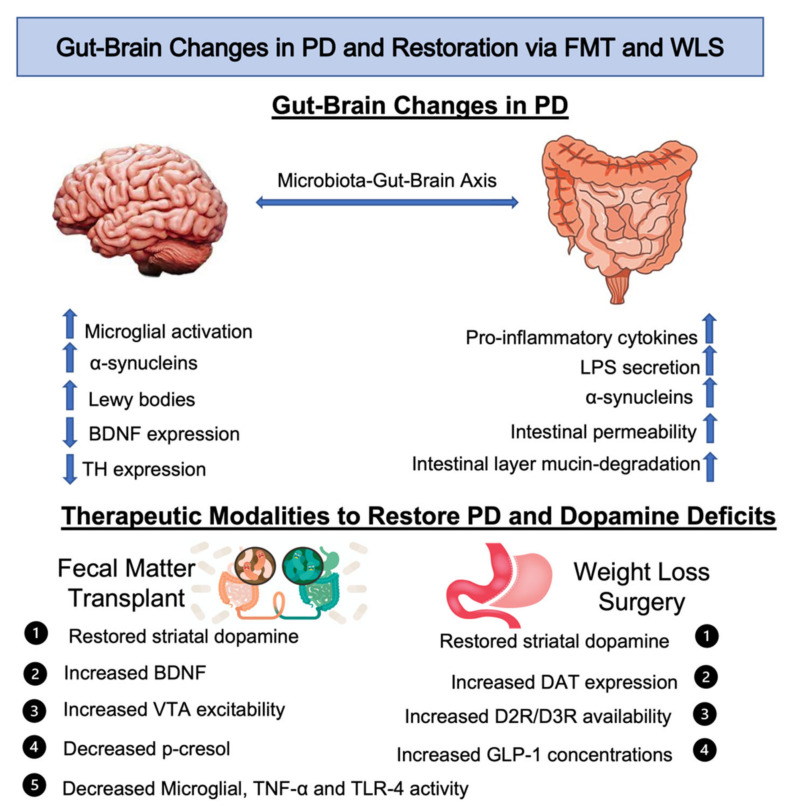Figure 4.
Gut-brain changes in Parkinson’s Disease and restoration of dopaminergic and Parkinson’s disease deficits via fecal microbiota transplant and weight loss surgery. Changes in the brain include decreased BDNF levels, reduced tyrosine hydroxylase expression, increased α-synuclein and microglial activity. Changes in the gut include increased intestinal permeability, mucin-degradation and α-synucleins, LPS secretion and pro-inflammatory cytokines. Fecal microbiota transplant increases striatal dopamine concentrations, VTA dopamine excitability and BDNF, while decreasing p-cresol levels and microglial activity. Weight loss surgery increases DAT expression, D2R/D3R expression, GLP-1 levels, and striatal dopamine concentrations. Abbreviations: BDNF, brain derived neurotrophic factor; TH, tyrosine hydroxylase; LPS, lipopolysaccharide; TNF-α, tumor necrosis factor α; TLR-4, toll-like receptor 4; VTA, ventral tegmental area; DAT, dopamine transporter; D2R, dopamine 2 receptor; D3R, dopamine 3 receptor; DAT, dopamine transporter; GLP-1, glucagon-like peptide 1; FMT, fecal microbiota transplant; WLS, weight loss surgery.

